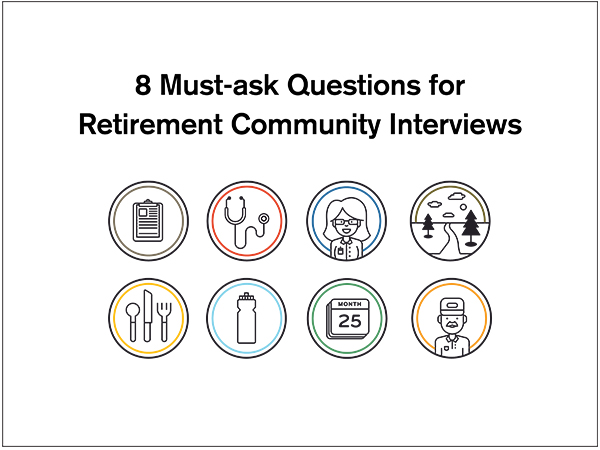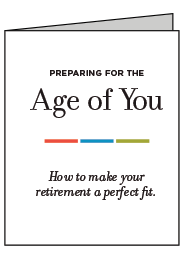Continuing Care Retirement Community (CCRC) or Life Plan Community (LPC): A senior living community that offers a continuum of care, including independent living, assisted living, memory and skilled nursing care, all within the same campus.
Continuum of Care: Access to a range of services on a single campus, ensuring seamless transitions between care levels.
Independent Living: Housing options for seniors who can live independently but seek a community environment with social activities and services.
Age-Friendly Community: Location or neighborhood designed and adapted to meet the needs and preferences of people of all ages, ensuring that older adults can live active, healthy and engaged lives. Age-friendly communities aim to create environments where individuals can age in place comfortably and maintain a high quality of life as they grow older.
Lifelong Learning: The continuous and self-driven quest for knowledge, skills and personal development that spans one’s life. It’s marked by a proactive and eager approach to learning, fueled by intrinsic motivation, curiosity and a hunger for self-improvement. Lifelong learning goes beyond formal education and structured environments; it includes self-guided learning, skill development, exploring new interests and an ongoing commitment to intellectual pursuits. It encompasses various educational activities, workshops, classes and social interactions that provide mental stimulation and a deep sense of fulfillment.
There are also a lot of internet searches for “assisted living facility meaning.” Again, “facility” is an outdated term. Here are some current terms you might hear when researching your assisted living options:
Activities of Daily Living (ADLs): Essential tasks for daily functioning, including bathing, dressing, eating, toileting, transferring and continence care.
Aging in Place: The ability of seniors to live for as long as possible while receiving just the right amount of support and services from their own home.
Assisted Living: Communities that help with daily activities, such as bathing, dressing and medication management, while preserving residents’ autonomy.
Enhanced Assisted Living: Daily living support plus chronic or complex health needs care.
Home Care: Services provided in the senior’s home to assist with activities of daily living, medication management and companionship.
Home Health Care: Medical and nonmedical services delivered at home by healthcare professionals, including nursing, therapy and personal care.
Instrumental Activities of Daily Living (IADLs): More complex daily tasks, such as managing finances, grocery shopping, preparing meals and housekeeping.
Searching for costs and contracts? Here are some very valuable terms to know:
Life Plan or Type A: This contract provides unlimited access to all levels of care for a predictable monthly fee. It offers financial security and cost savings over time.
Modified Contract or Type B: Residents receive a certain level of care included in their monthly fee, with additional care available at a discounted rate.
Fee-for-Service or Type C: This contract has a lower entrance fee but requires residents to pay market rates for care services as needed.
Entrance Fee: A one-time payment made by residents of a senior living community, typically associated with CCRCs, covering access to amenities and services. Refundability of entrance fees can vary depending on the terms and contract options the Life Plan Community offers. Refundability options can range from 0% to 100% of the entry fee returned to the resident or their estate upon leaving the community.
Monthly Fee: Regular payments made by residents to cover housing, services and amenities provided in the senior living community.
And here are some more general senior living definitions that will also help you as you begin this journey:
Age in Community: A concept where seniors live in neighborhoods with a mix of generations, encouraging social interaction and support between different age groups.
Amenities: Additional features and services provided by senior living communities, such as fitness centers, dining options, transportation and social activities.
Elderly Care: A comprehensive, yet unrefined, term encompassing various services and support aimed at meeting older adults’ physical, emotional and social needs.
Hospice Care: End-of-life care that emphasizes comfort and dignity for individuals with terminal illnesses, often provided in a home, hospice center or nursing home.
Memory Care: Specialized communities or units that offer tailored support and care for individuals with Alzheimer’s disease or other forms of dementia.
Occupational Therapy: Helps individuals regain and develop skills necessary for daily living, such as dressing, cooking and personal care. This therapy enhances seniors’ independence and confidence in performing routine tasks despite physical or cognitive challenges.
Physical Therapy: A structured rehabilitation program that improves mobility, strength and overall physical function through exercises and specialized techniques. It helps seniors improve their ability to move, walk and carry out daily activities with greater ease and independence.
Palliative Care: Comprehensive medical care focused on improving the quality of life for individuals with serious illnesses, addressing physical, emotional and spiritual needs.
Quality of Life: Overall well-being, comfort and satisfaction experienced by residents in their daily lives. It encompasses physical health, emotional and social fulfillment, access to enjoyable activities, safety and a sense of purpose.
Respite Care: Temporary care provided to seniors, often in assisted living or memory care communities, to give caregivers a break or support during short-term needs.
Senior Living Communities: Residential communities designed for older adults, offering various levels of care and amenities to promote active and comfortable lifestyles.
Short-Term Rehabilitation: A focused and intensive period of specialized therapy and medical care provided to individuals recovering from surgeries, injuries or medical conditions.
Skilled Nursing: High level of medical care provided by trained and licensed healthcare professionals, usually registered nurses (RNs) and licensed practical nurses (LPNs), within a specialized healthcare or skilled nursing facility (SNF).
Social Isolation: A state of minimal social contact or interaction, which can negatively affect older adults’ mental and physical well-being.
Speech Therapy: Addresses communication and swallowing difficulties. It involves exercises and techniques to improve speech clarity, language comprehension and safe swallowing, promoting seniors’ ability to communicate effectively and maintain proper nutrition.
No matter what you’re searching for, Paradise Valley Estates is the definition of a great place for seniors to live the lifestyle they enjoy with higher level care available, should the need arise.
Explore Paradise Valley Estates to discover more about our senior living options, including a wide range of residences, extra-mile services, everyday amenities and five-star dining experiences.
Featured Image: PeopleImages.com / Shutterstock



